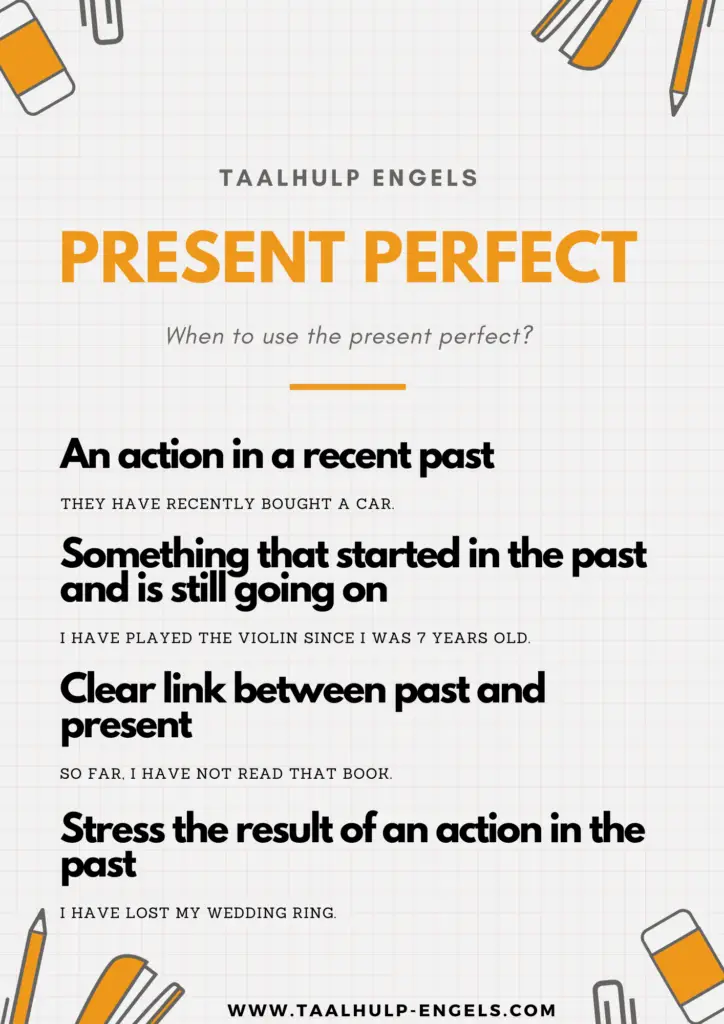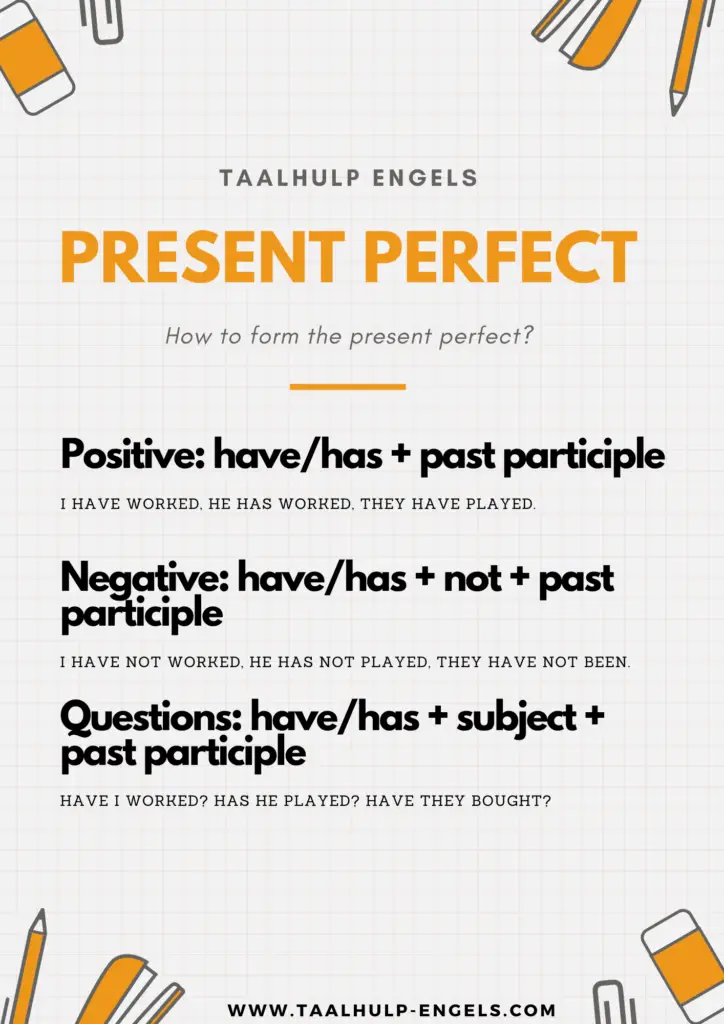The present perfect (or present perfect simple) is an important tense in the English language. On this page, you have a complete overview of everything there is to know about this tense.
Present perfect tense
You use the present perfect when there is a clear link between the past and the present. Below you can find an overview of specific situations in which you use this tense.
Something that happened in a recent past and has an effect on the present
- They have recently bought a new car.
Something that started in the past and that is still going on; the action is not finished
- I have played the violin since I was 7 years old.
An action where there is a clear link between the past and the present.
- So far, I have not read that book.
When you want to stress the effect/outcome of an action in the past
- I have lost my wedding ring.


How to form the present perfect
Present perfect positive
The present perfect (or present perfect simple) is formed with the present simple of ‘to have’, followed by the past participle of the main verb.
If you want to form the past participle, you have two options: regular and irregular verbs. The past participle of regular verbs is formed by adding <ed> to the infinitive. The past participles of most irregular verbs are listed on this page. There are no rules on how to form the past participle of irregular verbs so you need to study them.
If you want to make a present perfect, you always need two parts: have/has + past participle of the main verb.
| I have worked |
| You have worked |
| He/she/it has worked |
| We have worked |
| You have worked |
| They have worked |

Present perfect negative
To make the present perfect negative, you put ‘not’ after the auxiliary verb ‘to have’.
| I have not worked |
| You have not worked |
| He/she/it has not worked |
| We have not worked |
| You have not worked |
| They have not worked |
Present perfect questions
If you want to form a question in the present perfect, you need to change the word order. First, you put the auxiliary verb, then the subject and finally you put the past participle of the main verb.
| Have I worked? |
| Have you worked? |
| Has he/she/it worked? |
| Have we worked? |
| Have you worked? |
| Have they worked? |
Time indicators present perfect
If you have one of these words in a sentence, it’s usually an indication that you are dealing with a present perfect.
- Never, yet, so far, since, up to now, for 7 years, recently, ever, never
Examples
| Positive | Negative | Question |
| I have played He has sung | I have not played He has not sung | Have I played? Has he sung? |


Exercises
- Exercise 1
- Exercise 2
- Negative Exercise 1
- Negative Exercise 2
- Questions Exercise 1
- Questions Exercise 2
- Mixed Exercise 1
- Mixed Exercise 2
- Mixed Exercise 3
- Mixed Exercise 4
- Mixed Exercise 5


